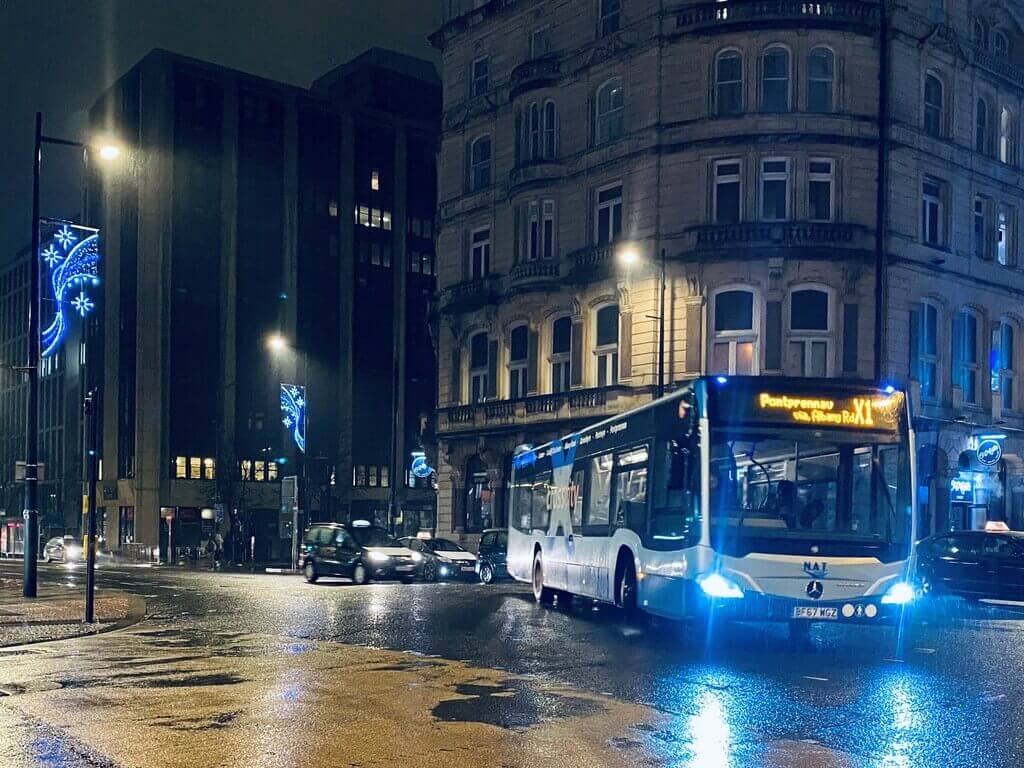In an open letter, NAT Group Managing Director Adam Keen has called for radical action on congestion in the Welsh capital. It comes in response to the city’s plans to tackle problems with pollution and air quality, which include the introduction of a congestion charge. The city council’s £2bn plans include more tram/train routes and stations in Cardiff, new ‘Bus Rapid Transit’ services and park and rides, cheaper bus travel, and safer walking and cycling routes. The cost of the 10-year plan would be funded through the congestion charge, says the authority.
Caro Wild, the councillor responsible for transport, suggested that the charge could be £2 a day. “One option might be a simple, universal £2, low-charging system applied to non-Cardiff residents who drive into the city,” he said.
 The council plans to work with operators to reduce bus fares and introduce a £1 fare across the city. Plans to improve bus services include creating a new cross-city bus network linked to the metro network, including a ‘bus loop’ and new bus stations in the east and west of the city, improving access to ‘key destinations’ including the University Hospital of Wales and Cardiff Metropolitan University, using SMART corridors to prioritise buses at traffic lights, and improving access to regional locations including Newport, Pontypridd and Penarth with new bus links.
The council plans to work with operators to reduce bus fares and introduce a £1 fare across the city. Plans to improve bus services include creating a new cross-city bus network linked to the metro network, including a ‘bus loop’ and new bus stations in the east and west of the city, improving access to ‘key destinations’ including the University Hospital of Wales and Cardiff Metropolitan University, using SMART corridors to prioritise buses at traffic lights, and improving access to regional locations including Newport, Pontypridd and Penarth with new bus links.
Council leader Huw Thomas said: “The future success of Cardiff hinges on getting transport right in the city. There can’t be anyone who is happy with the current state of affairs.”
However, Adam Keen of NAT Group would like to see a different solution. In his letter, he says: “Some of you will be aware that I joined NAT Group as Managing Director six months ago, having previously run a bus company that was credited with bucking the national trend of declining bus usage by recording some of the strongest growth in passenger numbers in the UK.
With that in mind, I set to work, investigating what puts people off using buses in Cardiff and what would make them consider an alternative to their cars.
Overwhelmingly – and unsurprisingly – bus service reliability is the most common answer. Some of the problems associated with this issue are entirely within the gift of the operator to fix and indeed, we have done a lot of work at NAT Group over the last few months to improve our offering for our passengers. We’re far from perfect yet, but we’re getting more and more feedback telling us that our changes are having a positive effect on the dependability of what we offer.
“There is, however, a problem: Using our ‘X1’ service as an example, this is a route than crosses Cardiff centre. We reviewed the reliability of this route in mid-2019 and established that it needed an extra 15 minutes put into the schedule on some journeys to run reliably, such is the increase in congestion within Cardiff. Adding that much time into a timetable costs a lot of money (wages, fuel etc) and it must be remembered that these changes don’t enhance the route, but simply enable it to operate reliably on the existing timetable. Many other routes that we operate required the same treatment and thus, the overall cost to us was significant.
“Much of the congestion that we have to contend with occurs in the very centre of Cardiff itself and as such, the timing of a discussion about congestion charging couldn’t be better. However, whilst accepting that this next comment will immediately be met with unsympathetic responses from many, the fact is that what is really needed is a commitment by local authorities and government to consider something much better than congestion charging: A ‘car-free’ Cardiff City Centre.
“York has taken the plunge and is now well underway with a consultation to ban cars from 2023. Many cities in Belgium, Finland, Germany etc have had the foresight to do the same. There are parts of central Cardiff that have already been identified as not yet meeting the ‘Clean Air Zone’ limits and whilst congestion charging will perhaps persuade some motorists not to enter Cardiff, it’s a half-baked solution to a problem which a ‘car-free’ zone would achieve far more quickly and far more effectively.
“Over the coming years, I look forward to working with the local authorities, TfW, local government and of course, our customers to considerably increase the appeal of bus services in Cardiff and beyond. There is much work to be done and I am pleased to see the reliability of NAT Group services improving week on week, but we need to get cars out of Cardiff and enable buses to move more freely and thus, more reliably.
“Put simply, more reliable buses equals more passengers, which in turn means more revenue for operators to invest in new routes, better networks and better travel solutions. Profit is often seen as a dirty word where public transport is concerned, but everyone would do well to remember that an operator who can’t make money is generally an operator who has less chance of developing for the good of the travelling public. To that end, I implore local decision-makers to consider assisting bus operators to help buses move more easily.”

